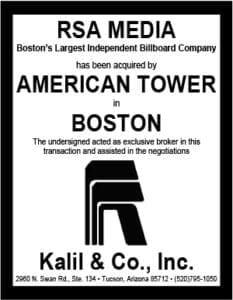
On March 15, 2021, the United States District Court for the Southern District of Texas issued an interesting First Amendment decision with potentially broad impact on the out of home industry. The case is PETA vs Hinckley, and you can access the opinion here. The case arises from the request of People for the Ethical Treatment of Animals, or PETA, to post advertisements on the buses owned and operated by Texas A & M University. The proposed ad includes a photo of a thin and drooling golden retriever in a cell and reads “Imagine having your body left to science while you’re still in it,” and it was part of PETA’s challenge to the University’s use of dogs in muscular dystrophy research and experiments. Shane Hinckley, the VP of Brand Development for the University and the Defendant in the case, rejected the proposed ad because it violated the University’s standards prohibiting “political campaigns and viewpoints or endorsements.” PETA sued, and Hinckley filed a motion to dismiss, which the Court denied with a comprehensive discussion of Free Speech and Due Process constitutional litigation. And, by way of full disclosure and disclaimer, my law firm is among the team of lawyers representing PETA in the case.

The Court begins with a review of the three different forums in which speech is expressed, and the permitted restrictions on the freedom of speech in each of these forums: (1) traditional public forums, such as parks, streets, and sidewalks, where the “government may impose reasonable time, place, and manner restrictions on private speech, but restriction based on content must satisfy strict scrutiny, and those based on viewpoint are prohibited;” (2) designated public forums, that have been intentionally opened for that purpose, with the same standards as traditional public forums applicable; and (3) nonpublic forums, which is “not by tradition or designation a forum for public communication,” in which “the government may impose some content-based restrictions on speech in nonpublic forums, including restrictions that exclude political advocates and forms of political advocacy.” For the purpose of the dismissal motion only, PETA conceded the University’s buses were nonpublic forums.
The Court then analyzes the two leading Supreme Court cases on these types of First Amendment challenges, namely the 1974 decision in Lehman vs City of Shaker Heights and the 2018 decision in Minnesota Voters Alliance vs Mansky. Hinckley relied on Lehman, which in a split decision upheld the City’s refusal to display a paid political advertisement for a candidate for state office on the City’s buses. Justice Douglas wrote in the plurality opinion that “the fact [the buses] are owned and operated by the City does not without more make it a forum,” noting “that the buses were more like highway billboards, ‘which have long been used to display an array of commercial and political messages,’ which the states could regulate under the Highway Beautification Act.” PETA, in turn, relied on Mansky, holding Minnesota’s ban on badges, buttons, and other political apparel inside polling places violated the Free Speech Clause because the law was not “capable of reasoned application.” The Court determined dismissal of PETA’s First Amendment challenge was not appropriate based on these cases, noting “the Lehman opinion was issued before the modern forum-based approach to First Amendment claims, the circuit courts considering similar bans on advertising on buses do not read Lehman as determinative and apply the guidance from Mansky, and there are many factors that distinguish this case from Lehman.”
The Court also denied dismissal of PETA’s second claim of constitutional vagueness, under which Due Process is violated if a law “is so vague that it leaves the public uncertain as to the conduct it prohibits or leaves judges and jurors free to decide, without any legally fixed standard, what is prohibited and what is not in each particular case.” Similarly, the Court denied dismissal of PETA’s third claim under the overbreadth doctrine, which “was designed as a departure from traditional rules of standing…to enable persons who are themselves unharmed by the defect in a statute nevertheless to challenge that statue on the ground it may conceivably be applied unconstitutionally to others, in other situations not before the Court.”
Once again, the Federal District Court’s decision was only on a motion for dismissal, and more will surely be written in the case after completion of discovery and the trial on the merits. Given how these Free Speech and Due Process constitutional challenges are regularly raised in more traditional billboard litigation, the PETA vs Hinckley case is one to key an eye on throughout the rest of the proceedings.
[wpforms id=”9787″]
Paid Advertisement

















